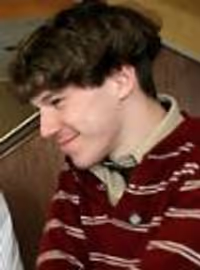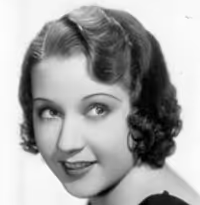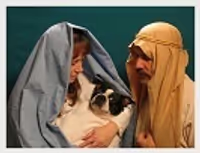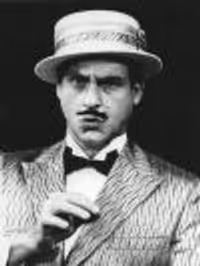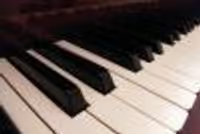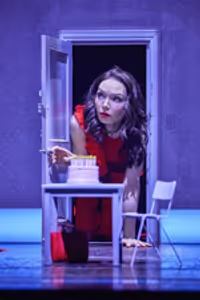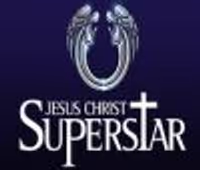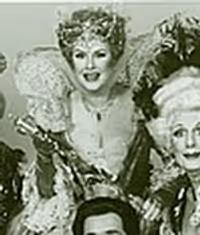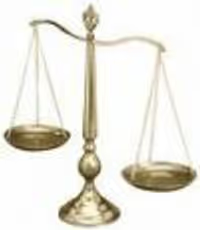How to get into Candide?
#1How to get into Candide?
Posted: 12/29/24 at 11:58pm
I’m ashamed to admit it, but I’ve never seen Candide and know very little about it. Any recommendations on what to watch or listen to as a good entry to the show? Thanks in advance for any input.
#2How to get into Candide?
Posted: 12/30/24 at 12:14am
I'm no expert on Candide but was recently going through some of the many versions.
I say start with the original cast recording. You'll probbaly have no idea what's going on. From there, watch the Chenoweth/LuPone concert production (but I couldn't tell you which version of the show it most closely follows. Candide, like Show Boat and Cabaret, has never been produced exactly the same way twice.) If you like that, maybe choose your own adventure from there, or call it a day?
Lenny's preferred version was the Scottish National Opera version, directed by Jonathan Miller, which was filmed in 1988 and is on YouTube. To my understanding that production was LB's response to Hal Prince & Hugh Wheeler's revisal, which he didn't love.
#3How to get into Candide?
Posted: 12/30/24 at 12:43am
Definitely start with the Original Broadway Cast recording. Barbara Cook's "Glitter and Be Gay" is, in a word, definitive. And the whole album is just perfect. Brisk, funny, well-sung and a lovely full sound from the orchestra. Goddard Lieberson did Bernstien proud on this one. If you get the CD (says this older gentleman who loves physical media), there will be a snyopsis. Wikipedia also has synopses for the work's various incarnations. I'd avoid the Deutche Grammophon recording conducted by Bernstein in the late 80's. Some nice pics among the various versions of the score, but by and large a cast that doesn't grasp the humor of the piece, and it's far too bloated and plodding (Pangloss really needs two VD songs?).
#4How to get into Candide?
Posted: 12/30/24 at 8:46am
I think the Chenoweth concert is the most accessible version of the score and the most successful as a production.
The NY City Opera recording is, imo, the best “complete” recording- or as complete as it gets. But the OBC has Barbara Cook’s pretty definitive “Glitter and Be Gay.”
Candide is a glorious score but I’m not sure it will ever fully work as a stage production. There’s a disconnect between the fast-paced, episodic, picaresque, and satirical source material and Bernstein’s sweeping score. The show kind of needs to hit its point and move quickly onto the next thing and Bernstein’s score wants to dazzle and luxuriate.
#5How to get into Candide?
Posted: 12/30/24 at 9:24am
I agree the 2004 LuPone/Chenoweth concert is the most accessible, but please keep in mind that there is an impersonation of a certain... citrus-skinned politician who at the time the public thought of as a silly loveable reality star. I watched in 2017 or so and it was really jarring to see him portrayed as a harmless goof by the theater community. Obviously at the time we had no idea what was coming. It's still a wonderful production.
Updated On: 12/30/24 at 09:24 AM#6How to get into Candide?
Posted: 12/30/24 at 12:23pm
I love CANDIDE, flawed as it is, and there's nothing I love more than a work that has been heavily rewritten over time. As others have suggested, the original cast album is a wonderful entry point - the original cast is largely definitive and the album zips along beautifully. It’s a great listen and I’d guess is largely responsible for the work’s longevity. I love the LuPone/Chenoweth concert version as well, Chenoweth is at her bubbliest and in great vocal health, and the production, by Lonny Price, leans into slapstick in a very fun way. the 1974 cast album is also a fun listen, and includes full dialogue, but the Prince/Wheeler version of the show is a very particular “take” on the material, focusing largely on the wackiness and the cynicism over the heart or philosophy (the Chenoweth concert uses a version of this script, but makes some smart incorporations from other versions).
Bernstein’s own 1988 recording (which was also filmed for television and available on dvd) is sung and conducted grandly, though it can’t match the original cast for tone or energy. Regardless of Lenny’s propensity to slow things down and, frankly, his tendency to get up his own rear end, there’s a benefit to hearing his final statement on the score and the concert includes a few wonderful songs that aren’t part of any previous version of the score, in particular Candide’s heartbreaking final aria “Nothing more than this” and the silly yet magisterial "King's Barcarolle." It’s also fun hearing opera legend Christa Ludwig cutting it up as the old lady.
So if you want to dip your toes into this score, I think those three or four recordings can give you a pretty accurate picture of it. If you want to do a deeper dive, however, there are other riches to be found. Read on if you wanna get nerdy.
There are, essentially, four scripts of the show in existence, and we’re lucky enough that through pirate recordings, radio broadcasts and a little hunting, we have videos or full recordings of three of them. To break them down, they are:
Lillian Hellman’s original libretto, which is a fascinating tonal mismatch to the score. In addition to the original cast album, there is bootleg recording of a fascinating 1968 concert version in existence, featuring Madeline Kahn and Alan Alda. I have that if you want to pm me, but wasn't able to find a copy on youtube. I DID find this bootleg recording from a 1971 touring production featuring Mary Costa (best known as the voice of Disney's sleeping beauty) which was broadway-aimed but never got there. https://parterre.com/2024/05/23/a-mouth-so-fair-it-must-be-kissed/
Hugh Wheeler’s wacky one-act script for Hal Prince’s immersive off-Broadway production, which I think was a major inspiration for “Natasha Pierre and the Great Comet”. This script got expanded into two acts, with some of the rough edges sanded off, for Prince’s elegant New York City opera production, which was revived on Broadway in 1998 with Jim Dale and Jason Danieley. This is the version we have the most recordings of - both the 1974 and 1998 broadway productions got a cast album, as did the original cast of the NYCO production in 1982. The NYCO production was also filmed for television in 1986, and as mentioned this is the main basis for the Chenoweth concert version, so it's stacked. The 1986 video is on youtube here: https://www.youtube.com/watch?v=VXF_1KJNHs8
John Wells and John Mauceri's edition, put together under Bernstein's supervision for Scottish Opera in 1988, later the basis for Bernstein's 1989 recording. This is the "grand opera" version, prioritizing the score over the story and sticking closer to the novel. Video versions of the Scottish opera production (https://www.youtube.com/watch?v=uQEQNuY6waw) and the Bernstein concert (https://www.youtube.com/watch?v=cMIzHnyuiNY) are on youtube. There is also a DVD of this version by the Teatro Argentina Opera in Rome, but It's largely unsuccesful
John Caird's adaptation for the highly lauded 1999 Production at the Royal National theatre, which leans heavily on the novel and trys to find a compromise point between Wheeler and Mauceri. It largely succeeds, but having sat through a couple of community-level productions of this one it can be VERY long in the wrong hands. No video of this one, but the Cast album is on spotify last I checked and worth a listen!
About a decade ago, Mary Zimmerman produced an excellent adaptation of the material for the Goodman Theatre in Chicago, which went on to play DC and I think one other regional theatre. It was excellent, and the best attempt I've seen at marrying the tone of the score to that of the novel. There's a video of it floating around the internet somewhere, though I don't currently have access. Happy hunting.
Also, check out https://www.sondheimguide.com/Candide/contents.html - an invaluable aid for Sondheim nerds in the early days of the internet, Michael Hutchens compiled a reference for every production of the show in existence, including a priceless copies of the Hellman and Wheeler librettos in full. It was last updated a decade ago, but such a great resource.
#7How to get into Candide?
Posted: 12/30/24 at 12:52pm
One of the things COVID robbed us of was a Goodspeed revival of Candide directed by Darko Tresnjak, which feels like an ideal combination of director and venue for an intimate-scaled production. No idea what version of the show was to be done, or if it was a new revision. Maybe they'll eventually do it.
#8How to get into Candide?
Posted: 12/30/24 at 1:12pm
This is just my opinion. i have seen Candide a few times. Yes it is very flawed and breaks the number one rule of theatre... it's incredibly BORING. There is some wonderful music in the score, that is for sure. Much of it. All I can do is wait for Make Our Garden Grow. Glitter and be Gay is long and a bore. It's not funny after hearing it 1000 times. Its like sitting through Adalaide's Lament once again. A 8 minute bore.
Rentaholic2
Broadway Legend Joined: 3/14/04
#9How to get into Candide?
Posted: 12/30/24 at 2:35pm
I had trouble getting into it too. It's a really strange show. I listen to the 1997 revival recording, because that's the one I finally got used to.
I would start by just listening to the more accessible songs a few times until they stick in your brain. For me, that would be the Overture (one of the greatest), Oh Happy We (originally written for West Side Story), Bon Voyage, What's the Use, and Make Our Garden Grow (stunning). Then try listening to the full score and see if it grabs you. I didn't get what the big deal was about Glitter and Be Gay for a long time, so I wouldn't try to use that as your entry point. I ultimately came to appreciate it as a vocal tour-de-force for a soprano (and it can be quite funny depending on how it's performed).
#10How to get into Candide?
Posted: 12/30/24 at 2:47pm
The Chenoweth/LuPone concert was my first viewing and I still think it’s the most accessible and entertaining version.
#11How to get into Candide?
Posted: 12/30/24 at 4:02pm
I love Candide, and unlike some posts above, I most prefer Bernstein’s 80s recording. Its grand, it’s slyly satirical, and the music is absolutely stunning and operatic.
It also highlights to me why Candide is much more of an “opera“ than a musical or operetta. The Hellman book, despite its fabulous final scene, is far too dense for an operetta and is famously at odds with the score. The Wheeler book (especially in the Price concert) is almost too silly to me and also doesn’t match the score. For me, the platonic ideal is to use the opera house version but eliminate Voltaire as a character to let the score shine and keep it lightly funny and insightful
#12How to get into Candide?
Posted: 12/30/24 at 9:19pm
I like Caird's version the best. Trim the narration from Voltaire a tad, do some showing rather than telling, and you'd have a winner. (As, comparing their respective song-stacks, Mary Zimmerman seems to have learned, give or take one number...)
Broadway Legend
joined: 5/1/05
Blocked: After Eight, suestorm, david_fick, emlodik, lovebwy, Dave28282, joevitus, BorisTomashevsky, Seb28
#13How to get into Candide?
Posted: 1/18/25 at 8:28pm
Thank you to all who recommended or talked about the 1988 Scottish Opera recording I could find on YouTube. I watched it and it was great. Probably the best one, though the warring puppets were a little uncanny and scary. Anyway, the music is so beautiful in that one, and a lot of things made sense to me that I didn't remember from the Chenoweth concert I had seen. That said, I was still lost on how some people got places and what happened to them and even just plain what was happening sometimes. I looked at the plot of the novel on Wikipedia and it was a little different from the opera. For instance it seemed the last time Candide discovers Cunegonda,
she is a dish maid, but in the opera it seemed he last found her rich, and said that was what she wanted instead of love, or something?
Anyway, I don't like how it's such a farce that characters which would normally be dead, many times, come out alive just because it's funny. Yeah, it's funny, but I would love to take the characters seriously in the end. It got serious in the end but that beautiful song, though it made me cry, would, I think, be better served with...I don't know, something that makes me feel for the characters, not just care about a life lesson. I think it's the book's problem.
Does anyone know, is this 1988 version the closest to Voltaire's original novel?
#14How to get into Candide?
Posted: 1/18/25 at 8:31pm
Voltaire’s novella is really, really brisk and matter of fact. It’s very short and is really just a series of events with not a lot of emotional depth- it’s all social commentary and satire.
#15How to get into Candide?
Posted: 1/21/25 at 9:21am
Oh, I see then why the musical's book is hard to make us care for the characters. I still cried at "Garden Grow", but it was more for how beautiful the music was. I kind of wonder why Bernstein chose this to make a musical of, if we don't really feel for the characters? I think he tried, and hoped, to make us care for the characters. Thank you for helping me, Kad.
Updated On: 1/21/25 at 09:21 AM#16How to get into Candide?
Posted: 1/21/25 at 3:38pm
I was walking around Philly this weekend and noticed that Curtis is performing Candide in April.
Videos


